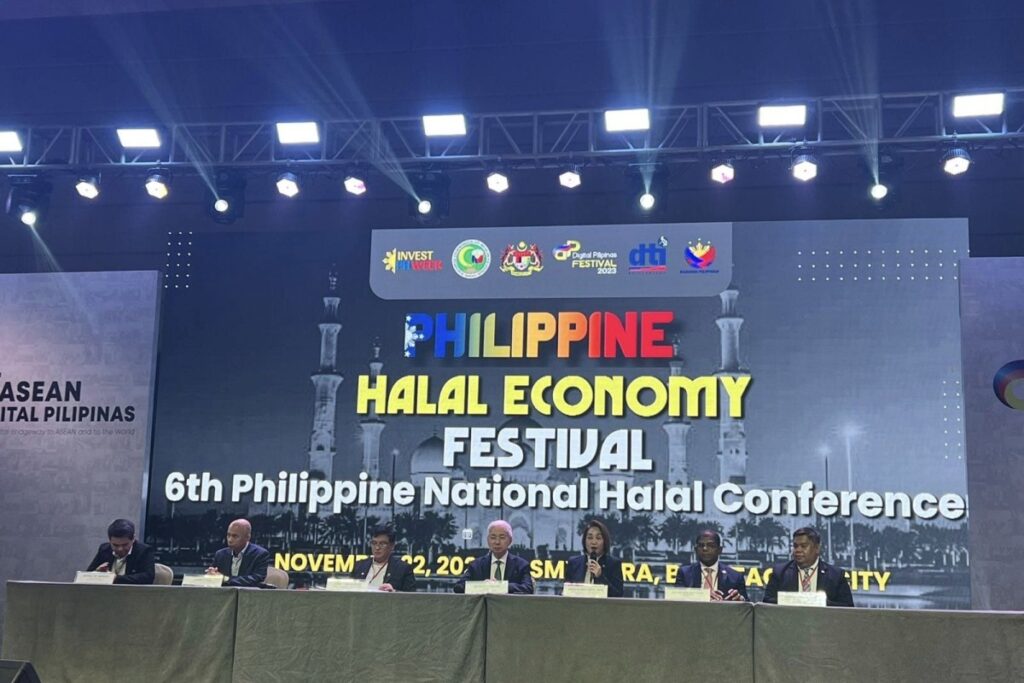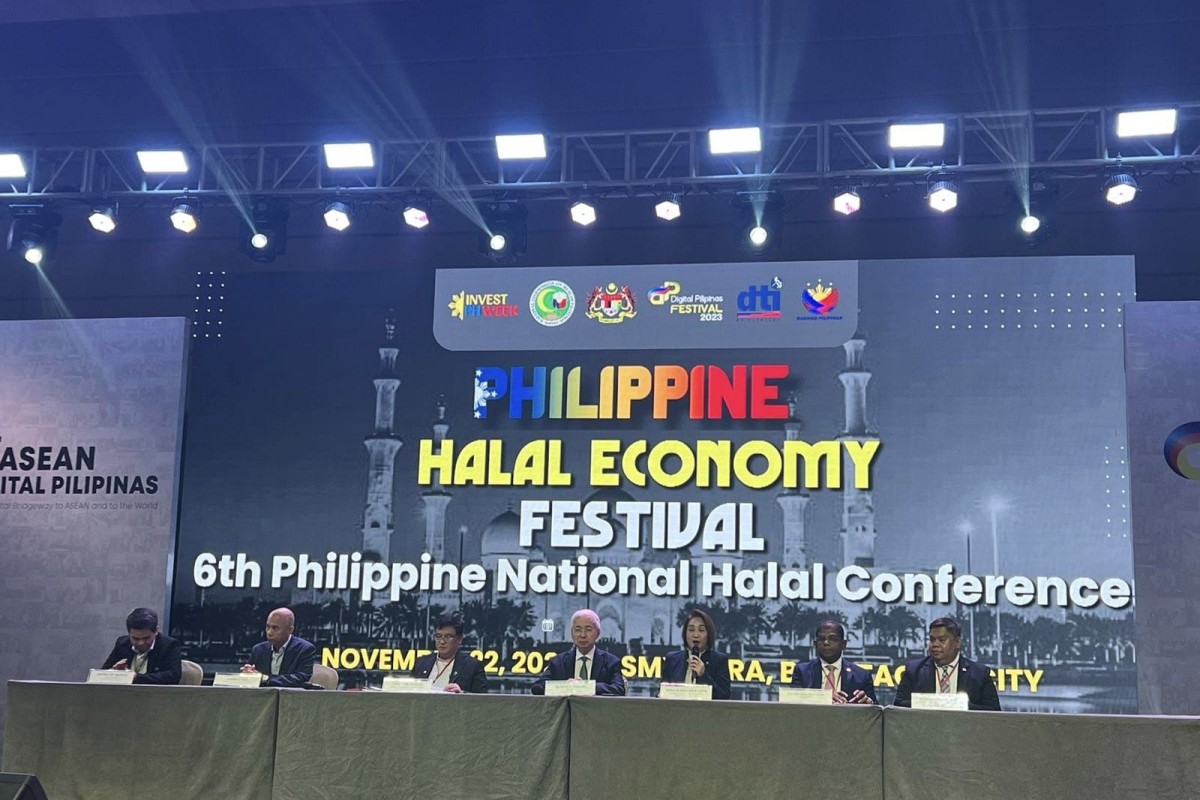by Jan Michael Carpo, Reporter
Technology advocacy group Digital Pilipinas has recognized the importance of the Muslim community recently by featuring the first “Philippine Halal Economy Festival” that it organized together with the Department of Trade and Industry (DTI) Halal Task Force and the Embassy of Malaysia.
The Philippine Halal Economy Festival and the 6th Philippine National Halal Conference kicked off last week, bringing together a diverse array of stakeholders, entrepreneurs, and experts to delve into the vibrant world of halal products and services.

DTI Secretary Alfredo Pascual with other signatories from the Embassy of Malaysia during the signing of the Halal Industry Development Agenda at the Philippine Halal Economy Festival in BGC, Taguig City.
Digital Pilipinas — the largest private-sector-led advocacy movement for creating an innovation and technology ecosystem in the country — officially opened the Digital Pilipinas Festival last November 20 and has included the Philippine Halal Economy Festival and the 6th Philippine National Halal Conference.
Catalyzing Economic Growth
Amid the picturesque backdrop of Manila, the festival and conference provided a platform for entrepreneurs, government officials, scholars, and industry leaders to engage in dialogue about the opportunities and challenges in the halal economy.
The halal industry, which covers a broad spectrum including food, cosmetics, pharmaceuticals, and finance, is rapidly expanding globally, and the Philippines aims to position itself as a key player in this dynamic market.
Diverse Panels and Workshops: The conference featured a lineup of thought-provoking panels and interactive workshops covering topics ranging from halal certification processes to the latest trends in halal tourism. Experts shared insights on the economic potential of halal products, not only for the Muslim population but also for a broader consumer base seeking ethical and high-quality products.
Innovation and Technology in Halal: A significant focus was placed on the intersection of technology and the halal industry. Entrepreneurs showcased innovations such as blockchain-based halal certification systems and apps that help consumers easily identify and purchase halal products. This emphasis on technological integration aimed to streamline processes and enhance transparency in the halal supply chain.
Celebrating Diversity: The festival aspect of the event celebrated the rich cultural diversity of the Philippines, showcasing halal food, traditional crafts, and cultural performances. Visitors had the opportunity to experience the richness of Filipino Muslim culture and explore the flavors of halal cuisine from various regions.
Strategic Partnerships and Networking: The conference also served as a hub for networking and forming strategic partnerships. Entrepreneurs had the chance to connect with potential investors, distributors, and collaborators, fostering an environment conducive to business growth and innovation.
Government Commitment: Key government officials expressed their commitment to supporting the halal industry as a driver of economic development. Efforts to streamline halal certification processes and create a conducive business environment for halal entrepreneurs were highlighted as part of the government’s broader strategy.
As the 6th Philippine National Halal Conference and Halal Economy Festival drew to a close, participants left with a sense of optimism and a commitment to advancing the halal industry in the Philippines.
The event not only showcased the potential for economic growth but also underscored the importance of inclusivity, cultural appreciation, and collaboration in building a robust and sustainable halal economy. The Philippines, with its diverse cultural tapestry, is poised to become a significant player in the global halal market, contributing to the economic prosperity of the nation.
DTI vows to support sustainability initiatives, particularly PH halal economy
In October, the DTI and the DTI Special Halal Task Force, in partnership with Digital Pilipinas, formally launched the Halal Industry Development Agenda along with Invest Philippines Week.
The US$3 trillion global halal economy, which is projected to grow to US$5 trillion by 2030, shows that there’s plenty of room for a Philippine halal economy to take shape. Through the DTI and the Halal Task Force, today’s government initiatives comprise a concerted effort to help grow the halal industry in the Philippines. Halal is derived from Islamic teachings and is central to the life of Muslims around the world.
During the launch, DTI Secretary Alfredo Pascual underlined the importance of moving forward with the above key initiatives during his keynote speech.
“Over the next five years, the DTI’s strategic plan is to achieve a remarkable milestone of P230 billion in halal trade and investments while creating over 120,000 jobs. This is not just an economic endeavour, it is a vision that encompasses growth, inclusivity, and a brighter future for our nation and its people,” Pascual said.
“Together, we will embark on this journey towards a more prosperous and halal-driven Philippines,” he added.
Representing Malaysia, H.E. Dato Abdul Malik Melvin Castelino, Ambassador of Malaysia to the Philippines, affirmed that now is the best time to keep moving forward with economic plans for halal.
“Malaysia is willing to extend its expertise to the Philippines in venturing into halal and digitalization through market access and capacity building – including training,” said H.E. Malik Castelino. “Let us embark on this journey with renewed determination and dedication, confident in our ability to overcome challenges and embrace the opportunities that lie before us.”








